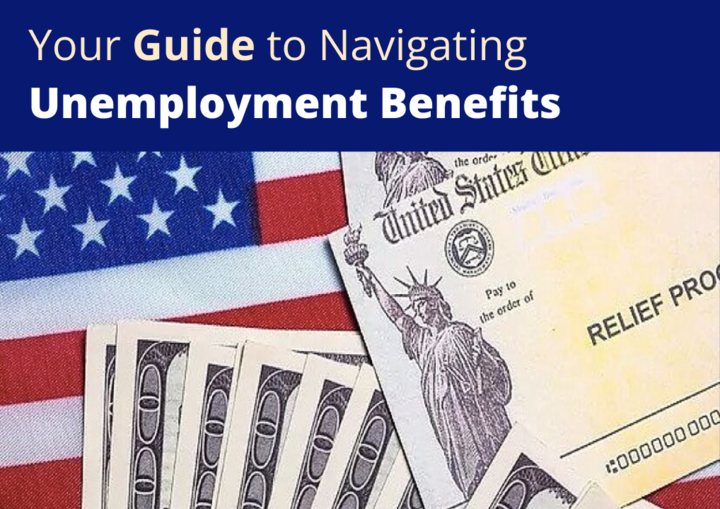To navigate the complex landscape of real estate, one must first develop a comprehensive understanding of the market in which they are operating. This involves not only familiarizing oneself with current trends but also grasping the historical context that has shaped the market dynamics. For instance, in a booming market characterized by rising property values, buyers may find themselves in bidding wars, where multiple offers on a single property can drive prices well above the asking price.
Conversely, in a buyer’s market, where inventory exceeds demand, buyers may have more leverage to negotiate favorable terms and prices. Understanding the market also requires an awareness of local economic indicators, such as employment rates, population growth, and infrastructure developments. For example, a city experiencing a surge in job creation due to the establishment of new tech companies may see an influx of residents seeking housing, thereby increasing demand and property values.
Additionally, seasonal trends can influence market behavior; for instance, spring and summer often see increased activity as families prefer to move during school breaks. By analyzing these factors, potential buyers can make informed decisions that align with their financial goals and lifestyle needs.
Key Takeaways
- Understanding the market is crucial for making informed decisions when buying a property.
- Setting a realistic budget helps in narrowing down options and avoiding financial strain.
- Researching comparable properties gives a better understanding of the market value and helps in making a competitive offer.
- Knowing your deal breakers is important to avoid making a decision that you might regret later.
- Making a strong offer requires careful consideration of the market conditions and the seller’s expectations.
Setting a Realistic Budget
Establishing a realistic budget is a critical step in the home-buying process that requires careful consideration of various financial aspects. Buyers must assess their current financial situation, including income, savings, and existing debts, to determine how much they can afford to spend on a property. This assessment should include not only the purchase price but also additional costs such as property taxes, homeowners insurance, maintenance expenses, and potential homeowner association (HOA) fees.
A common rule of thumb is that housing costs should not exceed 28% of a household’s gross monthly income; however, individual circumstances may necessitate adjustments to this guideline.
Moreover, it is essential to account for unexpected expenses that may arise during the home-buying process. For instance, buyers should set aside funds for closing costs, which can range from 2% to 5% of the purchase price.
Additionally, having a financial cushion for repairs or renovations is prudent, as many homes may require updates or maintenance after purchase. By creating a comprehensive budget that encompasses all potential costs associated with homeownership, buyers can avoid financial strain and ensure they are making a sound investment.
Researching Comparable Properties
Conducting thorough research on comparable properties—often referred to as “comps”—is vital for buyers looking to make informed decisions about their potential purchase. Comps are properties that are similar in size, location, and features to the one being considered and have recently sold or are currently on the market. By analyzing these properties, buyers can gain insights into fair market value and identify trends in pricing within their desired neighborhoods.
For example, if similar homes in the area are selling for significantly less than the asking price of a property of interest, it may indicate that the listing is overpriced. In addition to price comparisons, researching comps can provide valuable information about the amenities and features that are most desirable in a given area. Buyers can assess which upgrades or renovations yield the highest return on investment by examining what features are common in recently sold homes.
For instance, if most homes in a neighborhood boast modern kitchens and updated bathrooms, it may be wise for buyers to prioritize these features in their search or consider budgeting for renovations if they find a home that lacks them. This research not only aids in making competitive offers but also helps buyers understand what they can expect from their investment.
Knowing Your Deal Breakers
Identifying deal breakers is an essential part of the home-buying process that allows buyers to focus their search on properties that meet their non-negotiable criteria. Deal breakers can vary significantly from one buyer to another; for some, it may be the number of bedrooms or bathrooms, while for others, it could be the proximity to schools or public transportation. By clearly defining these parameters before beginning the search, buyers can streamline their efforts and avoid wasting time on properties that do not align with their needs.
Additionally, understanding deal breakers can help buyers maintain perspective during negotiations. In a competitive market where emotions can run high, it is easy to become enamored with a property and overlook critical flaws. For instance, if a buyer has established that they will not compromise on having a backyard for their children or pets, they should remain steadfast in this requirement even if they encounter a home that is otherwise appealing but lacks outdoor space.
By keeping these deal breakers at the forefront of their minds, buyers can make more rational decisions and ultimately find a home that truly meets their needs.
Making a Strong Offer
Crafting a strong offer is crucial in securing a desired property, especially in competitive markets where multiple bids are common. A well-structured offer not only reflects the buyer’s serious intent but also demonstrates an understanding of the property’s value based on market research. Buyers should consider including an offer price that is competitive yet reasonable based on comparable sales data.
Additionally, offering earnest money—typically 1% to 3% of the purchase price—can signal commitment and strengthen the offer’s appeal.
Beyond price, other elements of an offer can enhance its attractiveness to sellers.
For instance, buyers may choose to include flexible closing dates or waive certain contingencies to make their offer more appealing.
In some cases, offering to cover closing costs or providing a personal letter explaining why they love the home can create an emotional connection with the seller. Such strategies can differentiate a buyer’s offer from others and increase the likelihood of acceptance.
Negotiating with Confidence
Understanding the Seller’s Motivations
Understanding the seller’s motivations—whether they are looking for a quick sale or have specific timelines—can provide valuable insights during negotiations. For example, if a seller is relocating for work and needs to close quickly, offering a shorter escrow period may be advantageous.
Effective Negotiation Strategies
Effective negotiation also involves clear communication and maintaining professionalism throughout the process. Buyers should approach negotiations with an open mind while remaining firm on their deal breakers and budget constraints.
Achieving Mutually Beneficial Outcomes
It is essential to listen actively to the seller’s concerns and be willing to compromise on certain aspects while holding steadfast on critical issues. This balance of assertiveness and flexibility can lead to mutually beneficial outcomes and foster goodwill between both parties.
Considering Contingencies
Contingencies are clauses included in purchase agreements that allow buyers to back out of a deal under specific circumstances without losing their earnest money deposit. Common contingencies include home inspections, financing approval, and appraisal contingencies. Including these provisions is crucial for protecting buyers from unforeseen issues that may arise after an offer is accepted.
For instance, if a home inspection reveals significant structural problems or safety hazards, having an inspection contingency allows buyers to renegotiate terms or withdraw from the contract without penalty. While contingencies provide essential safeguards for buyers, it is important to strike a balance between protecting oneself and making an offer attractive to sellers. In competitive markets, excessive contingencies may deter sellers from considering an offer favorably.
Therefore, buyers should carefully evaluate which contingencies are necessary based on their individual circumstances and the specific property in question. By doing so, they can safeguard their interests while remaining competitive in negotiations.
Seeking Professional Help
Navigating the complexities of real estate transactions often necessitates enlisting professional help from experienced agents or brokers who possess in-depth knowledge of local markets and industry practices. A skilled real estate agent can provide invaluable guidance throughout the buying process—from identifying suitable properties to negotiating offers and navigating paperwork. Their expertise can help buyers avoid common pitfalls and ensure compliance with legal requirements.
Additionally, working with professionals such as mortgage brokers or real estate attorneys can further streamline the process and provide additional layers of protection. Mortgage brokers can assist buyers in securing favorable financing options tailored to their financial situation while real estate attorneys can review contracts and ensure that all legal aspects are properly addressed. By leveraging professional expertise, buyers can enhance their confidence in making informed decisions and ultimately achieve successful outcomes in their real estate endeavors.
FAQs
What are some tips for negotiating the best home price?
Some tips for negotiating the best home price include doing thorough research on the local real estate market, getting pre-approved for a mortgage, being prepared to walk away if the deal isn’t right, and working with a skilled real estate agent.
How can I research the local real estate market?
You can research the local real estate market by looking at recent sales data for comparable homes in the area, studying trends in home prices, and getting a sense of how long homes are staying on the market before selling.
Why is getting pre-approved for a mortgage important for negotiating the best home price?
Getting pre-approved for a mortgage is important for negotiating the best home price because it shows sellers that you are a serious and qualified buyer, which can give you more negotiating power.
What should I do if the deal isn’t right during negotiations?
If the deal isn’t right during negotiations, it’s important to be prepared to walk away. Sometimes, walking away can give you more leverage in negotiations and lead to a better deal in the long run.
How can a skilled real estate agent help with negotiating the best home price?
A skilled real estate agent can help with negotiating the best home price by providing valuable market insights, guiding you through the negotiation process, and using their expertise to help you secure the best possible deal on a home.







